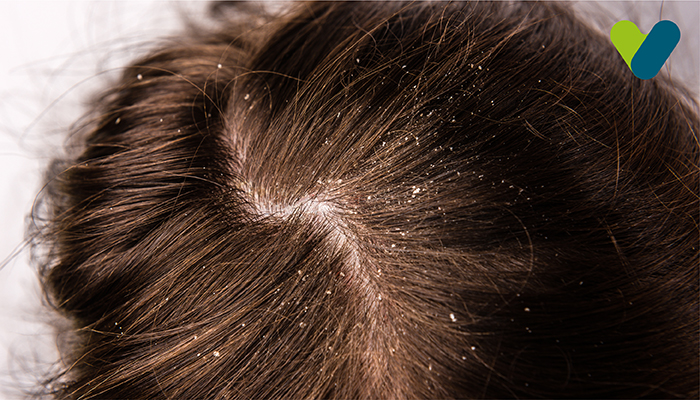Dandruff is a common condition that causes the skin on the scalp to flake. This condition is not serious or contagious. However, it can be a bit difficult to treat and it can also be quite embarrassing to have.
The treatment of dandruff will depend on the extent of the problem. For example, the best dandruff for milder conditions would include a gentle daily shampoo. If that doesn’t work, then one can opt for a medicated shampoo.
However, if you are suffering from dandruff and you are looking for the right dry scalp treatment, then you first need to learn more about the condition. And we’ll help you with that today. We will also talk about the best dandruff solution.
The Symptoms
Before you can get the best dry scalp treatment, you need to know that dandruff is a mild form of seborrheic dermatitis. Some symptoms of this condition are:- Skin flakes present on the scalp, hair, eyebrows, shoulders, beard, and moustache
- Itchy scalp
- Scaly and crusty scalp in infants with a cradle cap
The Causes
Usually, it’s not clear why an individual is suffering from dandruff. However, some possible factors are mentioned below.- Seborrheic Dermatitis
Apart from the scalp, dandruff can also occur at the back of the ears, the eyebrows, the chest, and other parts of the body.
- Medical Conditions
- Certain Skin Conditions
- A Fungus
- Shampooing and Skin Care Products
- Other Factors
The Treatment
There are some lifestyle changes and home remedies that one can follow to treat this condition. These lifestyle changes and home remedies are:- Manage stress
- Brush your hair often
- Avoid products that contain harsh chemicals and detergents
- Follow a suitable scalp and hair-care strategy
For mild dandruff without a specific cause, various over-the-counter products can help in managing the condition. However, before using the product, you should try to remove as many scaly and crusty patches on the scalp as possible. This will increase the effectiveness of the scalp.
To remove the loose scales or flakes, one can gently use a comb or hairbrush. Make sure that you should not remove patches or plaques too aggressively as this could irritate the condition.
There are also some ingredients that an individual should look out for while finding shampoos that can help in treating dandruff. Some of these ingredients are:
- Ketoconazole
- Selenium sulfide
- Zinc pyrithione
Salicylic acid also helps in removing excess skin cells. Tea-tree oil has antifungal and antibacterial properties. Studies have also shown that shampoos that contain 5% tea tree oil are safer and provide better results for treating dandruff. However, if you are expecting a reaction, then you should do a patch test first to be safe.
How to Use Anti-Dandruff Shampoo?
Depending on your hair type, you might be required to use a medicated shampoo a number of different times. Individuals with darker hair can shampoo their hair once a week or twice a week. If you feel as if the shampoo does not help, then you can try a different shampoo.Also, sometimes it is possible that due to the frequent use of anti-dandruff, it might stop being effective enough. A specific shampoo can also become less effective over time. In both of these cases, it is a good idea to switch to a different shampoo. You should also make sure that the ingredients of the new shampoo should be different from the ingredients that were used in the previous shampoo.
It can also help to leave the shampoo on the scalp. The length of time that you should leave the product on your scalp can also vary depending on the ingredients that are present in the shampoo. Ideally, you should follow the instructions that are present on the shampoo bottle.


